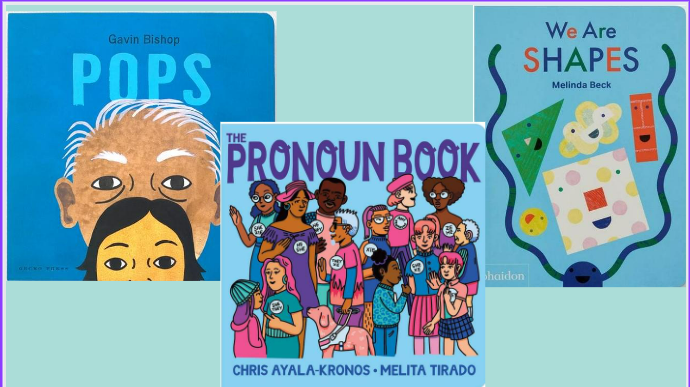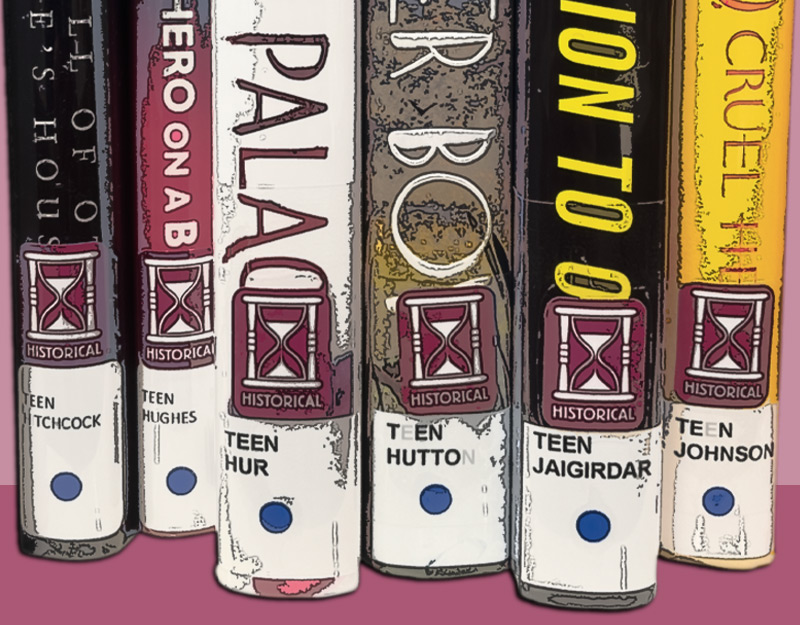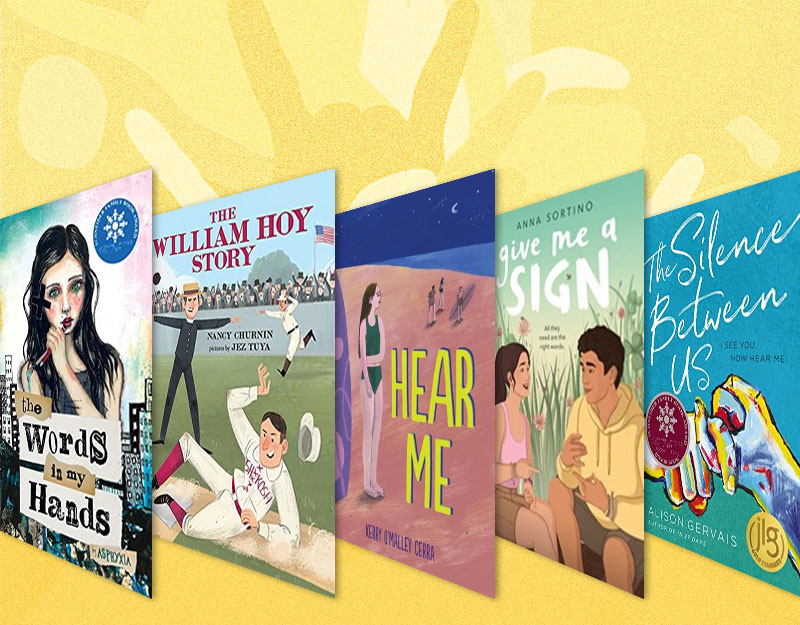Novels in Verse for National Poetry Month, Week 3 By Lisa Krok
April is National Poetry Month, so here we go with week three of novels in verse! I have been posting a verse novel on Twitter @readonthebeach each day, along with a corresponding poetry activity. Click here for my previous post about using my book, Novels in Verse for Teens to reach marginalized and reluctant/striving readers, and here for the round-up from week one and week two.
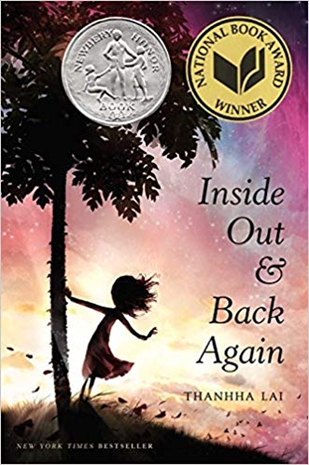
Day 15: Inside Out & Back Again by Thannha Lai
Summary:
Ha’s father left for a navy mission nine years ago and was captured. Her family has moved south to get farther away from communism and are living in poverty. They flee to Guam, and are then flown to another tent city in United States, living with a sponsor in Alabama. The entire family start new schools and jobs, and work on learning English. Ha has always been very smart, but she doesn’t feel smart now at school as she learns a new language. This story mirrors the author’s own experiences growing up, and things she has noticed in her own nieces and nephews. Grief and healing via family are themes that resonate.
ADVERTISEMENT
ADVERTISEMENT
Found poetry activity:
Ha has always been smart, but she struggles when her family moves to the U.S. from Vietnam. Found poetry can be a great way for English language learners to create poetry. Found poetry is a type of verse created by taking words, phrases, and sometimes whole sentences from other sources and reframing them by altering the sequence, adding or deleting text, changing spacing, etc, to construct new meaning. Think of found poetry as a collage of sorts, but with poems instead of pictures. https://www.facinghistory.org/resource-library/teaching-strategies/found-poems
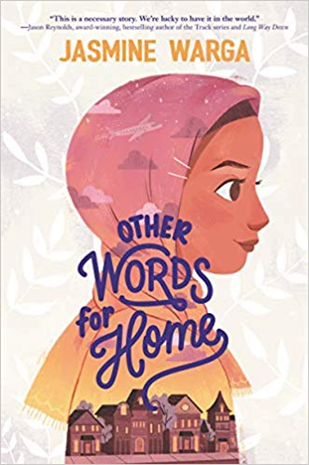
Day 16: Other Words for Home by Jasmine Warga
Summary:
When things become volatile in war torn Syria, Jude and her mother take refuge in Cincinnati, Ohio with relatives, while her father and brother stay behind. Jude finds she has a new label of “Middle Eastern” in the United States, and she struggles to adjust at first. As she begins to make new friends and get to know her new family better, she realizes that she can be herself after all.
Empathy poetry activity:
Thirteen-year-old real-life Syrian refugee, Amineh Abou Kerech has gone through some experiences similar to the protagonist, Jude, in Other Words for Home. After fleeing first to Egypt from Syria, Amineh and her family eventually found refuge in England. This of course meant navigating a new culture and also learning a new language, much like Jude. Amineh used poetry to express herself, which encouraged others to have empathy. She wrote her prizewinning poem, “Lament for Syria”, half in English, and half in Arabic. Try writing a poem in a style of your choice that evokes empathy as Amineh did: https://vimeo.com/237486658
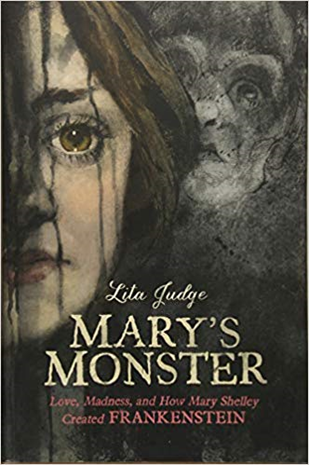
Day 17: Mary’s Monster: Love, Madness, and How Mary Shelley Created Frankenstein by Lita Judge
Summary:
Many recognize Mary Shelley’s name as the author of Frankenstein. However, what most people don’t know is that before the age of twenty, she had already been disowned by her family and was living with a married man in a scandalous arrangement. She survived losing two babies just after their births, before pouring her anguish into the book that was first published anonymously. Years later, Lord Byron made public letters that proved Mary Shelley was in fact the anonymous author of Frankenstein. Free verse is paired with haunting black and white watercolor illustrations in this unique biography in verse.
Mental health advocacy poetry activity:
Mental illness is clearly a theme throughout Mary’s Monster. Did you know that one in five people will suffer from a mental health issue at some point during their lifetime? That means some of your friends and family, including you, may be struggling with one right now. Read the action guide linked below for facts about mental health, and to learn how you can use poetry to address mental health in your life and community.
https://powerpoetry.org/actions/mental-health
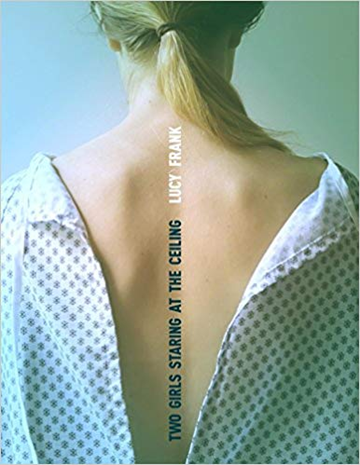
Day 18: Two Girls Staring at the Ceiling by Lucy Frank
Summary:
Two girls share a hospital room and an illness, in very opposite ways. Where one quiet, the other is loud. Where one is polite, the other is rude. One screams in pain, while the other silently tolerates it. As their friendship slowly grows, the curtain separating their hospital beds opens, but is one is getting better while the other declines?
Exquisite corpse poetry activity:
The unique thing about this book is the format of the line running down the middle of the pages, which is a metaphor for the curtain between the girls in their hospital room. This has a similar feel to a parlor game created in the 1920-1930s during the Parisian Surrealist Movement. Exquisite corpse poetry actually has nothing at all to do with corpses, but the name is certainly intriguing to teens! Exquisite corpse is a collaborative poetry game played by several people, each of whom writes a word on a sheet of paper, folds the paper to conceal it, and passes it on to the next player for his or her contribution. It is a good idea to have participants agree on a sentence structure before beginning. An example might be adjective, noun, verb, adjective, noun. Small adjustments like verb tenses and articles can be configured after the poem has been written by the group. The only real hard and fast rule is that each poet cannot see what the others have written. This can produce a surprising, hilarious, and sometimes completely absurd poem. See https://poets.org/text/play-exquisite-corpse for more details.
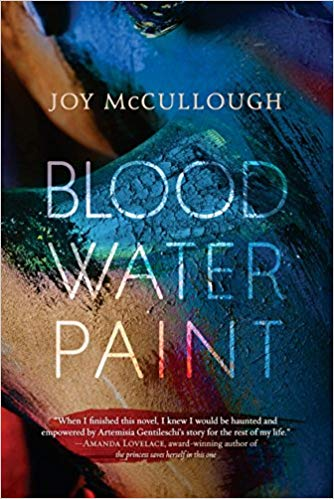
Day 19: Blood Water Paint by Joy McCullough
Summary:
After her mother passes away when Artemisia was only twelve, she had two choices: become a nun in a convent or work for her father grinding pigment for his paint. She chose the paint. Surrounded by misogyny and sexual abuse, Artemisia was one of the most talented painted of the time, but no one knew her name. Biblical parables of Judith and Susannah are interspersed in this hybrid of prose and verse.
Ekphrastic poetry activity:
Ekphrastic poems that describe works of art are a perfect pairing for this book. Use the following tips to guide writing an ekphrastic poem:
• Find a painting or sculpture that you find interesting. This could be a piece you see in real life, or find a photo online.
• Look at the artwork, from different angles. Be mindful of how it makes you feel. Take notes about your thoughts and use multiple senses to help describe them.
• Who do you see
in the painting/sculpture? What are they doing? What might they do afterwards?
• Be creative with your poem! Try writing as if you were in the art, speaking
to someone viewing it- or write about a conversation the people might have with
each other. Imagine a story written about these people by the artist. Compare
the art to something else, such as another statue or a busy day downtown. The
possibilities are endless!
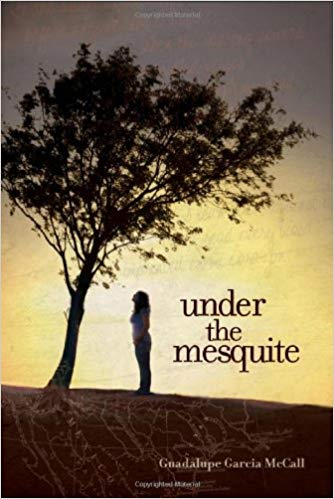
Day 20: Under the Mesquite by Guadalupe Garcia McCall
Summary:
ADVERTISEMENT
ADVERTISEMENT
As the oldest of eight children of Mexican American immigrants, Lupita is forced to grow up fast when Mami is diagnosed with cancer. During the course of illness, poverty, death, and grief, Lupita emerges resilient and determined.
R.I.P. poems: how to write a poem about death
As it in inevitable for us all, death is a universal experience that affects every single person. Dealing with such intense pain can be hard to manage. While no words can do justice to a life that is lost, poetry is a tool that can help you process the loss and is extremely effective as a coping mechanism during difficult times of mourning or grief. It is an avenue of self-expression where all your pain, loss, and suffering take written form, and the completed product is one of severity and truth. This tip guide will further assist you in writing poetry about death and grief:
https://powerpoetry.org/actions/rip-poems-how-write-poem-about-death
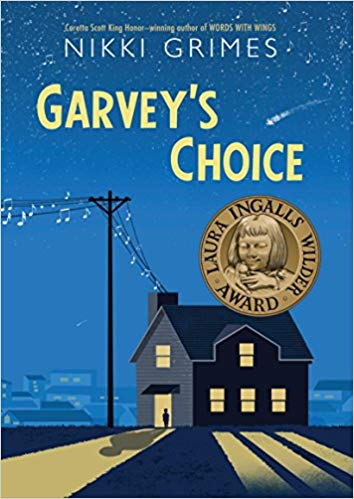
Day 21: Garvey’s Choice by Nikki Grimes
Summary:
Garvey’s dad wants him to be athletic like his sister and into sports, but Garvey prefers Star Trek, books, music, and math.
He feels like a big disappointment to his father, until they uncover their common love of music and singing, and are then able to make a connection.
Tanka poetry activity:
The Japanese tanka is a poem written in thirty-one-syllables, traditionally in a single unbroken line. Tanka translates as “short song,” and is better known in its five-line, 5/7/5/7/7 syllable count form. Grimes uses the ancient Japanese poetry form, tanka, in this book. The word tanka also translates to “short poem” in Japanese. A line-by-line syllable count can vary in modern English versions, but the number of lines in a basic tanka remains the same, at five lines long. Not every poet follows a syllable count, but Grimes approaches the syllable count like a puzzle, where she tries to find the piece that fits best. Tanka poems can often focus on mood, and also may include telling a story, like in Garvey’s Choice. Try this modern form of tanka as Grimes did in this book. Using a thesaurus is helpful in finding synonyms to fit the number of syllables you need for each line.
-Lisa Krok
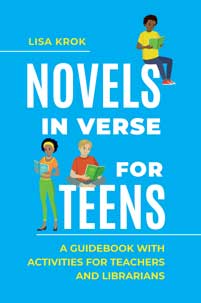
Find all of these activities and much more in Novels in Verse for Teens, available now.
Request it at your Indies.

Lisa Krok, MLIS, MEd, is the adult and teen services manager at Morley Library and a former teacher in the Cleveland, Ohio, area. She is the author of Novels in Verse for Teens: A Guidebook with Activities for Teachers and Librarians, available now from ABC-CLIO. Lisa’s passion is reaching marginalized teens and reluctant readers through young adult literature. She was appointed to the 2019-2020 YALSA Presidential Advisory Task Force, served two years on the Quick Picks for Reluctant Reader’s team, and is serving on the Best Fiction for Young Adults (BFYA 2021) committee. Lisa can be found being bookish and political on Twitter @readonthebeach. FacebookTwitterShare
Filed under: Uncategorized
About Karen Jensen, MLS
Karen Jensen has been a Teen Services Librarian for almost 30 years. She created TLT in 2011 and is the co-editor of The Whole Library Handbook: Teen Services with Heather Booth (ALA Editions, 2014).
ADVERTISEMENT
ADVERTISEMENT
SLJ Blog Network
Happy Poem in Your Pocket Day!
This Q&A is Going Exactly As Planned: A Talk with Tao Nyeu About Her Latest Book
More Geronimo Stilton Graphic Novels Coming from Papercutz | News
Parsing Religion in Public Schools
ADVERTISEMENT



